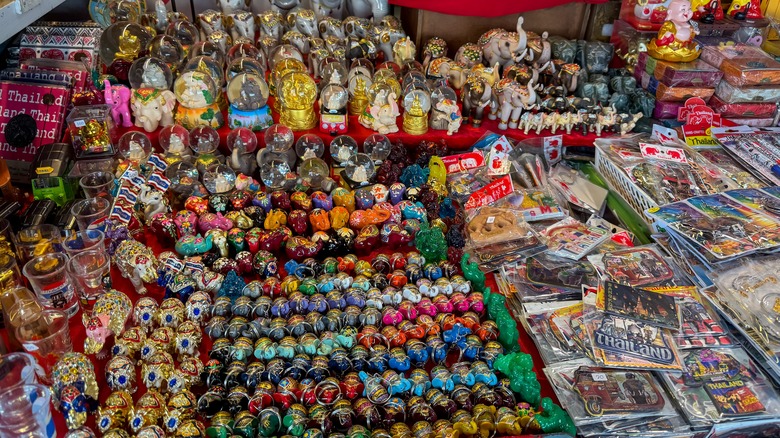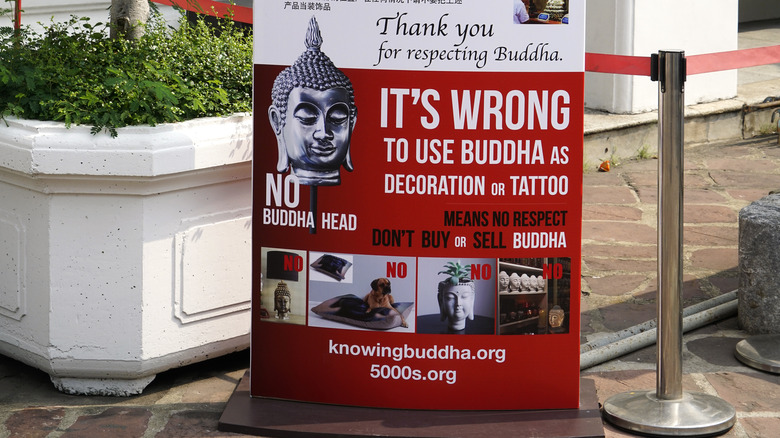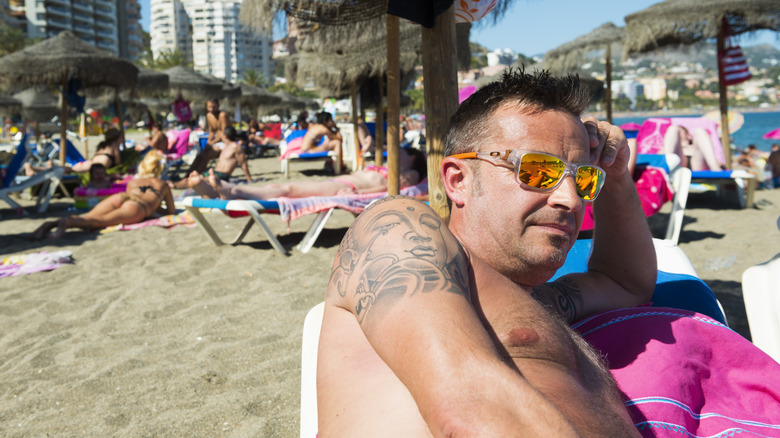The One Rule Tourists Should Know Before Buying Souvenirs In Thailand
One of traveling's greatest joys is collecting meaningful mementos to commemorate places we fell in love with but can't call home or experiences we want to remember. Whether it's a carnival mask purchased along the Venetian canals or any of the coolest souvenirs from a travel hot spot, these items carry stories and become cherished possessions. However, there are a few souvenirs that you should never purchase while traveling.
When browsing the night markets and street stalls in Thailand, avoid purchasing images or statues of Buddha. According to the Act on Ancient Monuments, Antiques, Objects of Art and National Museums (1961), you must obtain an export permit from the Office of Archaeology and National Museum Fine Arts Department before taking a Buddha statue or image measuring over 12 cm out of the country. This rule only applies to newly made statues or images of Buddha — plus, there is a limit of five items. Ancient or historically significant Buddha relics or images can't be removed from the country under penalty of fine or imprisonment as they are under the custodianship of the state.
Why are restrictions placed on Buddha images in Thailand?
Thailand is a predominantly Buddhist country where individuals and the state revere Buddha's image and teachings. For example, if you visit a temple in Thailand, you'll notice Thai people back away from the Buddha statue and never sit with the bottoms of their feet pointing towards the Buddha image. This is because turning your back on Buddha or showing the dirtiest part of your feet is considered very disrespectful. In addition, you shouldn't point at the Buddha image with your feet or fingers.
The Customs Department restricts the export of Buddha images to prevent thefts of ancient relics from historical sites and to ensure Buddha images are treated respectfully. For example, newly made images of Buddha over 12 cm may only be exported with permission for education, worship, or cultural exchange purposes. The bottom line: You're allowed to purchase some Buddha statues in Thailand, but buying a Buddha image over 12 cm for decor purposes is illegal.
Although you can buy small Buddha figures, it's generally considered disrespectful and heavily discouraged. In fact, when you enter Thailand through Suvarnabhumi Airport (BKK), you'll see large signs reading, "Buddhist father is not for decoration respect is common sense." Although the exact language changes periodically, the message remains the same: Buddha is not for decoration.
Other important Buddha etiquette rules
Every now and then, a Thailand newcomer posts a seemingly harmless question in an online forum: Where can I find a Buddha bowl in (insert Thai city)? Undoubtedly, within minutes, another expat will let the less experienced traveler know that asking for a Buddha bowl is quite rude. Naming a restaurant, a dish, or a bar after Buddha is considered disrespectful because it commercializes the father of Buddhism. You'll have better luck asking for a poke bowl or a grain bowl when visiting Thailand's most incredible spots.
Although many travelers get a new tattoo to commemorate each place, you should reconsider acquiring a Buddha tattoo. According to Buddhist teachings, the body is considered dirty, therefore it's inappropriate to celebrate Buddha through a tattoo. Also, there are specific rules for where a Buddha image can and cannot be placed. For example, a Buddha statue must be placed above your head as a show of humility and respect. Theoretically, if you got a Buddha tattoo on your body, your head would always be higher than the image. Tourists also need to be cautious of the clothing they pack on a trip to Thailand in case it displays a Buddha image or is otherwise inappropriate.


